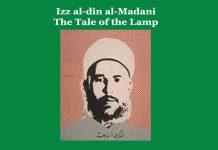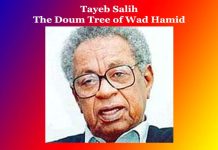Tolstoy | A Prisoner in the Caucasus | An Analytical Study
Tolstoy | A Prisoner in the Caucasus | An Analytical Study
Tolstoy | A Prisoner in the Caucasus | An Analytical Study
‘A Prisoner in the Caucasus’ is a Russian short story by Leo N. Tolstoy (1820-1910). Injustice and terror, cruelty is the main theme of the story.
It is the story of a Russian soldier who was taken off as a prisoner by the Tartars. The name of the soldier was Ivan Zhilin. He was far away from home in his service. He was of a poor family. He left his mother at home who was old. One day while he was in his service he received a letter from his mother asking him to come home as his mother became old and was desirous of seeing his only son. She also informed him that she had seen a pretty girl for him to be married if he wished. On receiving the letter he applied to his superior authority for an absence of leave and being the application granted he left his regiment for home. At that time there was a war on in the Caucasus and the roads were too dangerous to travel either by day or by night. If any of the Russians left the fortress he was in peril of being killed or taken off into the mountains by the Tartars. For this reason, a body of foot soldiers escorted civilians in and out of the fortress twice a week. It was summer. Zhilin rode on horseback with his baggage. There were twenty-five people to go. He was one of them. The wagon made slow progress: either the soldiers would halt for a rest or somebody’s wagon would lose a wheel, or a horse would pull up and each time the whole convoy would have to stop or wait. So Zhilin and one of his comrades named Kostylin left the other fellow travellers and went ahead alone. They arrayed themselves with arms, sabers and guns and began to progress. But somehow Kostylin leg behind and Zhilin went on ahead alone. After going some time he faced some Tatars chasing him. He made ready but they were many for which he could not defend himself and eventually he was caught by the Tartars. They took him up and down the mountains and at last, they carried him to a house of a Tatar with a red beard who was with the raiding band. He was chained and kept in a house locked behind. He was hurt and the blood coagulated on his head and face. He felt much hungry. The next morning he was given something to eat. Thus he began to spend some days there. One day he was carried to a nearby village in the house of a man called Abdul Murat. Murat said to him that he had bought him from Kazi Muhamed for two hundred rubles. His new master Abdul Murat ordered him to write a letter home telling his people to send a ransom of three thousand rubles for him. Zhilin said that he was not so wealthy and his people would unable to pay such huge money so he might write asking for only five hundred rubles for his ransom. But surprising this time he found there to come another captive who was none but his fellowman whose name was Kostylin who he legged behind. He was of a well-off parentage. His master also ordered him to write a letter home asking for five thousand rubles for his ransom. He wrote a letter. Zhilin also wrote a letter asking for five hundred rubles for his ransom. But he wrote the wrong address on it so that it could not reach his home. He thought that it would be impossible for his family to collect such money and intended to flee away somehow. Time passed but the money for their ransom did not come. One day Zhilin saw a girl about thirteen years there who had been the daughter of his master. He came often to him with water or something. Zhilin made toys and some playthings and threw them to the girl. The girl picked up and ran away. Thus some friendship developed between them. She often used to come to him with bread, butter or cheese. One night they- Zhilin and Kostylin- fled through the hole of the house and began to run on. But the mountains were so rugged that they could not go fast. The next day they were captured by their master and carried back again. This time they were kept in an unwholesome hole and even in a harsh condition. The chains were wrapped round their body and the chains were never removed. Till then no ransom for them arrived there. The same girl named Dina day came to Zhilin and gestured that their master had decided to kill them. Then Zhilin determined to flee from there that very night. At night the little girl Dina came. Zhilin told his comrade Kostylin to stand up and leave the place. But he said, “No. It looks that I am here for good. Where can I go, when I have not even the strength to turn?” Then Zhilin said, “In that case farewell. Don’t think badly of me.” Then the two men kissed each other. Dina the little child provided him with a pole and held it steady and Zhilin climbed up. Twice he fell back, hampered by his shackle. With Kostylin’s support, he managed to climb up and came out. At the foot of the slope, he found a sharp stone and tried to wrench open the padlock on his shackle. But the padlock was strong, and it was even made more difficult by the awkward position he had to sit on. Then he heard someone running lightly down the hill and assumed it must be Dina. She ran up, took the stone and said, “Let me try.” She knelt down and tried to wrench the lock open, but her hand was as slender as a little twig and did not have the strength for it. She threw away the stone and burst into tears. Then Zhilin stood up and flung the stone away and said, “Shackle or no shackle I must go.” He said to Dina, “Farewell Dina, I shall always remember you.” Dina grasped at him and searched him with her hands for somewhere to put her bread. He took them from her.
Dina started crying again, covered her face with her hands and scurried off up the hill, leaping like a young goat. Only the coins in her hair could be heard jingling in the dark. Zhilin crossed himself held the padlock high so that it would not clank and set out along the road. After going some ahead he saw three Tatars on a hillock, only a few-handed yards away. They had seen him and were racing towards him. Zhilin’s heart trembled. He waved his hands and shouted for help. The Cossack soldiers heard him and jumped to their horses. They came galloping towards him, hoping to intercept the Tatars. The Cassock soldiers rescued him and carried him to the fortress. Zhilin related everything that had happened to him. On the other hand, Kostylin’s ransom of five thousand rubles had been not paid for another month. However, the Cassock soldiers rescued him.
There are three main characters in the story- Zhilin, Kostylin, and Dina. Zhilin is the main Character. He is a Russian soldier. He became the victim of the Tatars and suffered a lot. He is a man of courage. Amid Adverse circumstances, he did not lose heart. Kostylin is his comrade. He may be called a coward as he did not dare to escape. He became too weak to walk and reconciled to his fate. Dina is a memorable character of Tolstoy. He is a child but she is full of kindness to the fellow being. He tried her best to help Zhilin to flee from the prison. Had Zhilin not gotten her help it may be he would have met his death there.
In narrating the story the author has employed the Objective Method with skill. In this method, an author keeps himself away from his story and delineates his story objectively.
The story, in Structure, is a perfect one. It bears visibly all the stages of a good short story. The opening is direct. In the opening, the storyteller introduces Zhilin, his principal character. The story gets its climax when Zhilin fled for the first time but recaptured by his master.
The Setting of the story is consistent with the events and situation. The author gives a good deal of description of his main character along with the environment of his event.
The Dialogue employed in the story is very logical as he uses them sparingly but all the dialogues have taken his story ahead and unfolded the inner nature and motives of his characters.
The Philosophy of Life is also found in the story. The author has not expressed it directly but leaves it to be drawn out by his readers after the reading of it that sometimes the good people have to suffer at the hand of wicked people.
The Language of the story is very simple as it is characterized by the use of concrete and formal (not unfamiliar) words and phrases and it is free from poetic imagery and much emotional expression.
All the Qualities of a good short story as —unity of purpose, brevity, spontaneity and universality are present in this short story. The brevity which is taken of as the soul of a short story is also maintained throughout the story as all the component elements of a good short story are employed in the story with possible economy without causing any harm to the perfectness of the story. Thus the universality is gained by means of the reliable representation of the theme and event. The story begins and ends with a spontaneous logical order and the author seems not to use any force in bringing about the end of his story through proper stages.
It is a short story of long Length as it comprises of about eight thousand words. 0 0 0. A Prisoner in the Caucasus, Tolstoy | A Prisoner in the Caucasus | An Analytical Studyudy
Read More: Leo Tolstoy’s Short Stroy ‘God Sees the Truth But Waits’-An Analytical Study
A Prisoner in the Caucasus
N. B. This article entitled ‘Tolstoy | A Prisoner in the Caucasus | An Analytical Study’ originally belongs to the book ‘World Short Story Criticism‘ by Menonim Menonimus. Tolstoy | A Prisoner in the Caucasus | An Analytical Study
Books of Literary Criticism by M. Menonimus:
- World Short Story Criticism
- World Poetry Criticism
- World Drama Criticism
- World Novel Criticism
- World Essay Criticism
- Indian English Poetry Criticism
- Indian English Poets and Poetry Chief Features
- Emily Dickinson’s Poetry-A Thematic Study
- Walt Whitman’s Poetry-A Thematic Study
- Critical Essays on English Poetry
- Tawfiq al-Hakim’s Novel: Return of the Spirit-An Analytical Study
- Tawfiq al-Hakim’s Novel: ‘Yawmiyyat Naib Fil Arayaf’-An Analytical Study
- Analytical Studies of Some Arabic Short Stories
- A Brief History of Arabic Literature: Pre-Islamic Period …
Books on Linguistics by M. Menonimus:
- A Brief History of the English Language
- Essays on Linguistics
- My Imageries
- Felicitous Expression: Some Examples
- Learners’ English Dictionary
Related Searches:
- Short Stroy Criticism
- The Indian English Short Story
- Individual and Society …
- ‘Deliverance’ by Premchand Analysis
- Summary of Rabindranath Tagore’s ‘The Exercise Book
- Short Story ‘Yellow Fish’ Essay Example
- Notes on Roger Mais’s ‘Blackout’
- ‘Blackout’ by Roger Mais
- ‘The Dog of Tetwal’ Saadat Hasan Manto
- The Three Questions
- R. K. Narayan Biography, Books
- Short Stories R. K. Narayan
- ‘Lawley Road’ by R K Narayan
- The Peasant’s Bread’ Summary Notes
- The Imp and the Peasant’s Bread
- How Much Land Does a Man Need
- How Much Land Does a Man Need? Question
- ‘A Prisoner in the Caucasus’ by Leo Tolstoy
- Leo Tolstoy ‘A Prisoner in the Caucasus’ …











